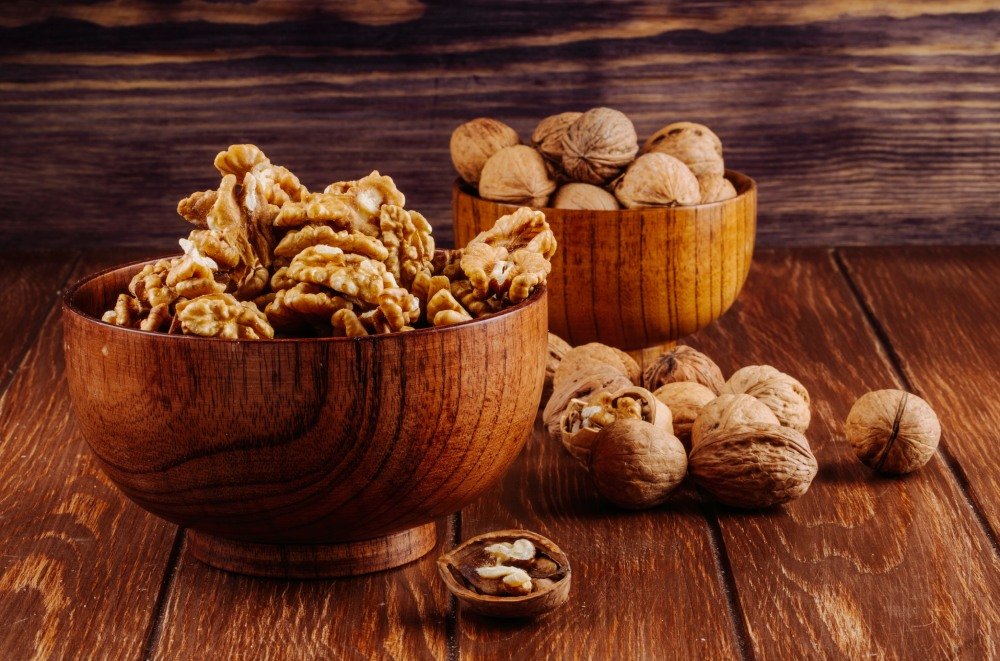Introduction to walnuts and their nutritional value
Welcome to a nutty adventure into the world of walnuts! These brain-shaped wonders are not just tasty snacks but also pack a powerful punch when it comes to health benefits. Let’s crack open the shell and explore why eating walnuts every day can do wonders for your well-being.
Health Benefits of Eating Walnuts Every Day
Walnuts are not just a tasty snack; they are also packed with numerous health benefits that make them a valuable addition to your daily diet. These nutrient-dense nuts contain high levels of antioxidants, omega-3 fatty acids, and essential vitamins and minerals. By incorporating walnuts into your everyday meals or eating them as a snack, you can boost your overall well-being.
One significant benefit of consuming walnuts regularly is their positive impact on heart health. Studies have shown that the omega-3 fatty acids in walnuts can help lower cholesterol levels and reduce inflammation in the arteries, potentially decreasing the risk of heart disease. Additionally, the antioxidants found in walnuts play a role in protecting against oxidative stress and improving vascular function.

Organic farming methods ensure walnuts are grown without synthetic pesticides or fertilizers, benefiting both health and the environment.
Furthermore, adding walnuts to your diet may also support brain health. The combination of healthy fats, vitamins E and B6, and folate found in walnuts can contribute to cognitive function and may even help prevent age-related cognitive decline. Whether sprinkled over salads or blended into smoothies, there are endless ways to incorporate these nutritious nuts into your daily routine for a sharper mind and enhanced overall health.
The link between walnuts and heart health
Do you know that incorporating walnuts into your daily diet can have a positive impact on your heart health? Walnuts are packed with omega-3 fatty acids, antioxidants, and fiber, all of which play a crucial role in reducing the risk of heart disease. These nutrients help lower cholesterol levels and improve blood vessel function.
Studies have shown that regular consumption of walnuts can lead to a decrease in inflammation and oxidative stress, both of which are linked to cardiovascular issues. Additionally, the presence of alpha-linolenic acid (ALA) in walnuts helps maintain healthy blood pressure levels.
Including a handful of walnuts in your meals or snacks every day can be a simple yet effective way to promote heart health. So next time you’re looking for a nutritious snack option, reach for some walnuts and show your heart some love!
Tips for Buying and Storing Walnuts
When it comes to buying walnuts, opt for ones that feel heavy for their size as this indicates freshness. Look for walnuts that are free from cracks or holes, which could be a sign of mold or insect damage.
Consider purchasing whole walnuts instead of pre-shelled ones as they tend to have a longer shelf life. To store your walnuts, keep them in an airtight container in the refrigerator or freezer to maintain their freshness and prevent rancidity.
If you prefer buying in bulk, ensure the nuts have been stored properly to avoid any spoilage. Check the expiration date if purchasing packaged walnuts from the store and make sure there are no added preservatives or excessive salt.
By following these tips for buying and storing walnuts, you can enjoy their maximum nutritional benefits while keeping them fresh for longer periods.
Tips for adding walnuts to your daily routine for a sharper mind
Looking to boost your brainpower and enhance cognitive function? Incorporating walnuts into your daily routine can be a game-changer.
Start your day with a nutritious breakfast by sprinkling chopped walnuts on top of your morning oatmeal or yogurt. The crunchiness adds a delightful texture while providing essential omega-3 fatty acids that support brain health.
For a mid-day snack, create a trail mix with walnuts, dried fruits, and seeds for an energy-packed nibble that will keep you alert and focused throughout the day.
Incorporate walnuts into your salads for added flavor and nutrients. Their versatility allows them to blend seamlessly with both savory and sweet dishes, making it easy to elevate any meal.
If you have a sweet tooth, try adding crushed walnuts to baked goods like muffins or banana bread for an indulgent treat that also nourishes your mind.
Experiment with different ways to enjoy walnuts in your meals – from pesto sauces to stir-fries, the options are endless when it comes to adding this superfood into your diet.
Conclusion
In the world of nutrition, walnuts stand out as a powerhouse of health benefits. From their high omega-3 fatty acid content to their antioxidant properties, these crunchy nuts are truly a superfood. Incorporating walnuts into your daily diet can have a positive impact on your overall well-being.
When it comes to heart health, walnuts shine bright. Their omega-3s help lower bad cholesterol levels and reduce inflammation in the arteries, promoting cardiovascular wellness. Additionally, the antioxidants found in walnuts play a role in reducing oxidative stress and improving blood vessel function.
Not only do walnuts benefit your heart, but they also support brain health. The combination of healthy fats, vitamins, and minerals in walnuts can enhance cognitive function and protect against age-related decline in memory.
To reap the full benefits of walnuts, ensure you’re buying fresh nuts and storing them properly to maintain their nutritional value. Whether sprinkled over salads, blended into smoothies or used as a topping for oatmeal, there are countless ways to incorporate this nutritious nut into your daily routine.
FAQ
Can I eat walnuts if I have a nut allergy?
While walnut allergies are not as common as other nut allergies, it is essential to consult with an allergist before consuming them. If you have a known allergy to tree nuts, including walnuts, it’s best to avoid them altogether.
How many walnuts should I eat per day?
The recommended serving size for walnuts is about 1 ounce, which is roughly seven whole kernels. Consuming this amount daily can provide you with the numerous health benefits that walnuts offer without going overboard on calories.
Are there any side effects of eating too many walnuts?
Eating excessive amounts of walnuts can lead to digestive issues due to their high fiber content and calorie intake. It’s important to practice moderation and balance in your walnut consumption to avoid any potential adverse effects.
Remember that while incorporating walnuts into your daily diet can offer a plethora of health benefits ranging from heart health support to improved brain function, it’s crucial to maintain a balanced and varied diet overall. Enjoy the goodness of walnuts in various ways and reap the rewards they bring for your well-being!
You may also love to read: 10 health benefits of coconut water
